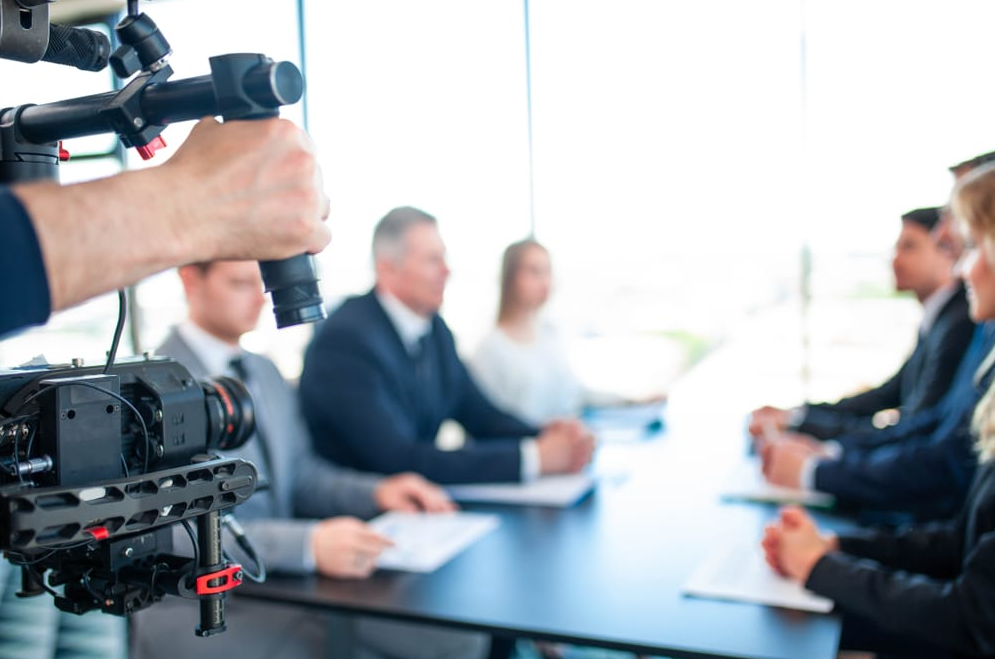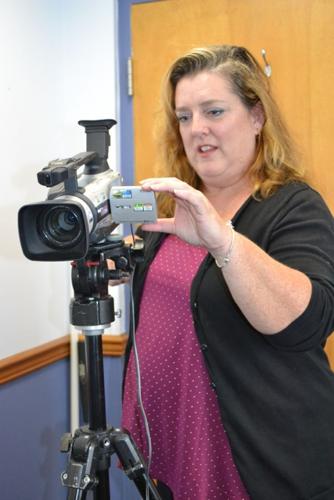Exploring the Different Types of Legal Videographers and Their One-of-a-kind Offerings
Legal videographers play a vital function in the judicial process, each specializing in distinct facets of court documentation. Their know-how varies from recording witness testimonies to enhancing test discussions. Recognizing the diverse offerings of these experts can brighten their contributions to legal process. As the intricacies of modern-day lawsuits grow, the significance of their roles becomes progressively evident. What certain functions do these videographers offer, and exactly how do they impact the end results of cases?
Recognizing Legal Videography
Legal videography plays an essential function in the judicial procedure, offering aesthetic documentation that can improve the clarity and precision of legal proceedings. This specialized field involves capturing video clip recordings of numerous legal occasions, such as tests, hearings, and other significant moments within the legal system. Legal videographers use advanced tools and techniques to ensure high-grade footage, which can act as crucial proof during litigation.Understanding legal videography calls for acknowledging its importance in sharing information in an aesthetic format. The taped footage can assist juries and judges much better understand the context and subtleties of testimonies and events, possibly influencing decisions. Additionally, legal videographers need to abide by strict guidelines and criteria to keep the integrity of the recordings. Their work not only aids in maintaining a thorough account of procedures but likewise adds to the overall openness and accountability within the legal framework, making sure that justice is offered effectively.
Deposition Videographers
Deposition videographers play a vital duty in legal process by recording witness statements for future referral. They make use of specialized tools and techniques to ensure top notch video clip documentation that precisely captures the subtleties of each deposition. Recognizing their techniques and the importance of their work can enhance the performance of legal presentations.
Function in Legal Process
While often neglected, the duty of videographers in legal procedures is crucial, particularly throughout depositions. These specialists record witness testaments, catching both spoken and non-verbal cues that can be pivotal in court. Their recordings work as an accurate representation of the deposition, offering a trusted referral for lawyers and courts. Videographers assure that the environment is expert, minimizing distractions and adhering to legal requirements. They are trained to manage numerous situations, consisting of unexpected disturbances or technological difficulties, safeguarding the integrity of the recorded product. Additionally, the existence of a videographer can hinder evasive habits from witnesses, advertising more honest feedbacks. On the whole, their contributions substantially boost the clarity and efficiency of legal procedures.
Equipment and Strategies Made Use Of
The devices and strategies made use of by deposition videographers are crucial for producing top notch recordings that precisely catch witness testaments. Professional-grade electronic cameras, commonly with 4K resolution, assurance clear visuals, while high-fidelity microphones catch audio without distortion. Videographers commonly utilize tripods for stability and lights devices to improve visibility, especially in less-than-ideal setups. Strategies such as framing the witness correctly and preserving suitable angles are essential for conveying body language and expressions. Numerous deposition videographers additionally utilize electronic editing software program to improve the end product, assuring clarity and comprehensibility. In addition, they might include time-stamping and annotations during post-production to assist in reference throughout legal process, eventually supplying a thorough and reputable document of the deposition.
Test Presentation Videographers
Test presentation videographers play a vital role in court setups by effectively picturing proof and enhancing the narration process. Making use of innovative technology and specific equipment, they produce compelling discussions that aid juries and courts grasp intricate information. Their proficiency in reliable narration strategies better elevates the influence of legal disagreements during trials.
Function in Court Room Settings
Regularly, legal videographers play a necessary role in court room settings by capturing and offering visual proof that enhances the clarity of legal debates. These specialists concentrate on documenting witness testimonies, depositions, and important evidence, making certain that the procedures are properly tape-recorded for future reference. Their job not only aids in the instant presentation of situations however also works as a useful resource during appeals or reviews. Trial discussion videographers thoroughly compile and modify video footage to develop compelling visual narratives that attorneys can use to convince discretionary. By incorporating aesthetic elements right into the test, they greatly add to the overall efficiency of the legal procedure, facilitating an extra educated decision-making atmosphere within the courtroom.
Technology and Tools Made Use Of
Modern test presentation videographers rely upon advanced modern technology and specific equipment to properly capture and present proof in the court room. High-definition cameras are commonly used to guarantee that every information is tape-recorded with clarity, while multiple camera angles can improve the aesthetic story. Videographers often utilize cordless microphones to record clear audio from witnesses and attorneys, lessening interruptions. Additionally, innovative software devices enable for real-time editing and smooth combination of video, images, and shows throughout presentations. Projectors and big screens are commonly utilized to show material in an interesting manner, making certain that jurors and courts can quickly adhere to the process. This combination of innovation and tools is important for creating impactful court presentations that help with understanding and retention of info.
Effective Narration Techniques
Capturing a fantastic read high-grade video clip and sound is just the beginning for test presentation videographers; efficient narration techniques play a critical role in communicating complicated legal narratives. These professionals utilize various techniques to enhance the clearness and impact of the material presented. By thoroughly structuring the visual and audio aspects, they produce a coherent flow that guides jurors with the truths of the instance. Utilizing methods such as thematic framing, emotional appeal, and rational progression, they emphasize crucial points and boost the overall debate. In addition, incorporating visuals, such as diagrams or computer animations, can streamline detailed ideas and keep the audience engaged. Eventually, test presentation videographers change raw video into engaging tales that resonate with jurors, promoting informed decision-making in the courtroom.
Video Proof Professionals
Video clip proof professionals play an important function in the legal procedure, making certain that aesthetic recordings are accurately captured, preserved, and presented in court. These professionals are trained to deal with a range of taping tools and strategies customized especially for legal setups. They concentrate on getting high-quality recordings that can endure examination, adhering to strict protocols to maintain the honesty of the evidence.Often associated with the documents of criminal activity scenes, depositions, and witness declarations, video clip evidence specialists are competent in producing footage that is both clear and dependable. They are also knowledgeable concerning legal criteria and demands, guaranteeing that their work adheres to administrative great post to read policies. Additionally, these professionals might assist in the post-production procedure, modifying and formatting video clips for finest presentation. Their knowledge help lawyers in effectively sharing their situations, making the role of video clip evidence professionals necessary in the pursuit of justice.
Court Videographers
While the court room typically acts as the phase for vital legal proceedings, court videographers guarantee that these minutes are documented with precision and quality. Their main duty is to catch all facets of a trial, consisting of witness testimonies, opening and shutting statements, and jury responses. Using customized equipment, court videographers guarantee that audio and video clip quality satisfy the criteria required for legal documentation.These experts are experienced at the office unobtrusively within the court room environment, navigating via the necessary procedures and keeping the integrity of the legal process. They usually collaborate carefully with lawyers to recognize specific requirements, making sure that important aspects are videotaped for future reference.Furthermore, courtroom videographers play a necessary duty in preserving the authenticity of the proceedings, supplying an invaluable resource for appeals or further lawsuits. Their experience warranties that all recorded product works as a trustworthy account of the court room occasions for all events entailed.

Post-Production Services and Editing And Enhancing

After the court room procedures are videotaped, the focus changes to post-production services and editing and enhancing, which play a considerable duty in fine-tuning the recorded material. Legal videographers make use of specialized software program to enhance video clip quality, making certain clarity and professionalism and trust. This stage usually includes color improvement, audio enhancement, and the removal of any kind of peripheral video, creating a meaningful story that aligns with legal standards.Additionally, videographers might include graphics, annotations, or subtitles to provide context or emphasize crucial info. The editing process also involves arranging the video footage chronologically or thematically, making it simpler for legal groups to reference particular segments during trials or depositions. Additionally, legal videographers frequently prepare final edits in various layouts to suit various platforms and uses, ensuring access for all stakeholders involved. Ultimately, efficient post-production services are important for creating high-grade legal video clips that sustain the situation available.
Frequently Asked Questions
What Credentials Should I Search for in a Lawful Videographer?

How Do Legal Videographers Ensure Video Top Quality and Integrity?
Legal videographers ensure video clip top quality original site and reliability through high-def tools, careful illumination, and audio management - legal videographers. They likewise abide by legal standards, utilize backup systems, and perform thorough pre-production planning to lessen possible concerns throughout recordings
What Equipment Do Legal Videographers Usually Utilize?
Legal videographers commonly utilize high-definition video cameras, tripods for stability, outside microphones for clear sound, and illumination tools to boost presence. They might additionally use editing software to ensure polished and professional end products for legal proceedings.
For how long Does the Modifying Refine Generally Take?
The editing process for legal videographers normally differs, varying from a couple of hours to numerous days. Variables such as video clip complexity, required quality, and specific customer demands considerably affect the general time commitment required for conclusion.
Are Legal Videographers Aware Of Court Etiquette?
Legal videographers generally have a solid understanding of court rules - legal videographers. Their training typically includes expertise of correct habits, equipment positioning, and respect for legal proceedings, guaranteeing their work straightens with the official atmosphere of the court room